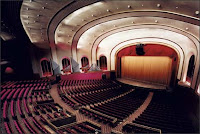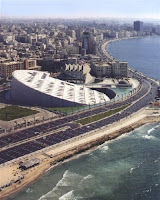
Vance Stevens, of the Petroleum Institute (Abu Dhabi) and founder of Webheads in 1998, gave a two hour Un-Workshop this morning at our Arab Region New Learning for Sustainable Development Workshop that he titled F.U.N. * Fair: Computer Mediated Communications Tools for Distributed Social Learning Networks. This was a face-to-face un-workshop, a veritable souk of activity, connectivity and interaction both in our training room at the Library of Alexandria, where we are now in Egypt, and with his online colleagues from Barcelona, the West Coast of the US, and so on, who joined us in Second Life, on skype and on worldbridges.net.
The Un-workshop had an open door policy, people were popping in and out. Laptops and terminals all on different pages, the clattering of keypads, exploring and trying out the URLs that Vance was introducing to us, talking us through, answering ten questions simultaneously. There were plenty of technical challenges, and at the same time lots of patient people who were excited by the possibilities, mystified by Second Life (one Egyptian participant said it should be called “Second Wife” instead), and eagerly starting their journey in the technology-mediated environment. It was great to have Vance as a guide. What you can learn from seeing it, trying it, and being able to query it in real time is so valuable, plus his enthusiasm is catching. You could tell that we weren’t the only ones having F.U.N.*
* Frivilous Unanticipated Nonsense





